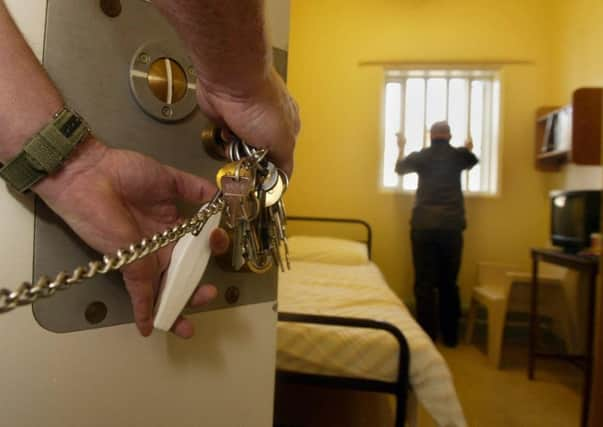Police set to monitor head injuries


Offenders taken into police custody are to be screened for brain injuries amid growing evidence linking head knocks with criminality.
Two police custody centres are to ask inmates about whether they have suffered head injuries in the past as part of a pilot project with the NHS.
Advertisement
Hide AdAdvertisement
Hide AdIt follows the publication of a report, Brain Injury and Offending, which called for systematic checks to be carried out by police custody officers and prison officers who would routinely ask inmates about their history of head injuries.
Following publication of the report, Holyrood’s justice committee wrote to the Scottish Government seeking its views on a series of recommendations.
In a letter to the committee, justice secretary Michael Matheson it wrote that a study was planned to take place by the end of the year which would see police custody officers ask an additional question on head injuries for those being admitted into their care.
But he said the establishment of a six to eight-bed low-secure brain injury rehabilitation unit was a matter for the NHS, not the Scottish Government.
Experts say the secure unit would allow those with challenging behaviour to be better managed and rehabilitated. While there is currently a “locked ward” for such patients, there is no specialist secure healthcare provision such as exists in England.
Mr Matheson said: “Recommendation two of the report was to pilot an additional question on head injury in two or more police custody centres in two NHS board areas.
“I can advise that a study is planned to take place in two police custody centres at the end of 2016 in collaboration with Police Scotland and the NHS forensic services that support them.”
The report, which was funded by the NHS and the Scottish Prison Service, said head injuries most commonly caused by falls and assaults had been shown to lead to “aggression, violence and emotional deregulation”.
Advertisement
Hide AdAdvertisement
Hide AdIt said tolerance to alcohol could be reduced after a head injury, with alcohol more likely to worsen the neurobehavioural effects of the injury.
Speaking to The Scotsman last month, Tom McMillan, the Glasgow University professor who led the research, said up to 60 per cent of prisoners could have a brain injury.
He said: “Although 60 per cent seems rather alarming, I suspect there’s a smaller proportion which we might have more concern about and whom we would want to get specific help to.
People who are in prison tend to come from more deprived areas and there’s a high incidence of problems with drink and drugs. These people don’t just appear after having fallen off their bicycle and suddenly turning to crime. It’s more likely the brain injury is going to be a component in the picture, but it’s a component that hasn’t been recognised so far. There’s no systematic check.”